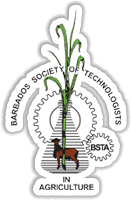
Recent experiences following hurricanes in the USA and Caribbean, where some persons didn’t have access to food for two or more days, have highlighted the importance of “food security”. This is further bolstered by the ever increasing world population that is rapidly approaching 8 billion, a whopping 11% of whom, according to the FAO, are already experiencing some degree of hunger.
Any food policy must consider stability or resilience to future disruption or unavailability of critical food supply due to various threats or risk factors including lack of foreign exchange, droughts, floods , shipping disruptions, fuel shortages, economic instability, and wars.
Food security is defined as access to and supply or availability of basic food, whether or not it’s imported. Food sovereignty , on the other hand, is being in control of your food supply as far as is possible i.e. producing as much as you can locally. This is even more important.
Having observed the recent plight of our Caribbean neighbours. it’s now easier to imagine what food supply in Barbados would be like if a natural disaster occurred that damaged or destroyed our infrastructure including ports (air and sea) and reduced our productive agricultural capacity. How long would the existing food stocks last and how soon could we replant our crops and increase our food production to fill the food import gap caused by the disruption?
Any future agricultural policy for Barbados must incorporate a measure of rehabilitation and enhanced agricultural production capacity in response to possible import disruptions that may be caused by natural or other disasters. A mix of crops with varying degrees of tolerance to unfavourable weather conditions (e.g root vs tree crops) should be considered.
Increasing food storage is not a long term solution as it’s costly and temporary and can just as readily be destroyed in a disaster. Remember Harvey, Irma and Maria!
The Barbados Society of Technologists in Agriculture (www.bstabarbados.org) is a body of agriculturalists concerned with the promotion of sustainable agriculture through the use of technology and science for the benefit of all stakeholders. Find us on Facebook.